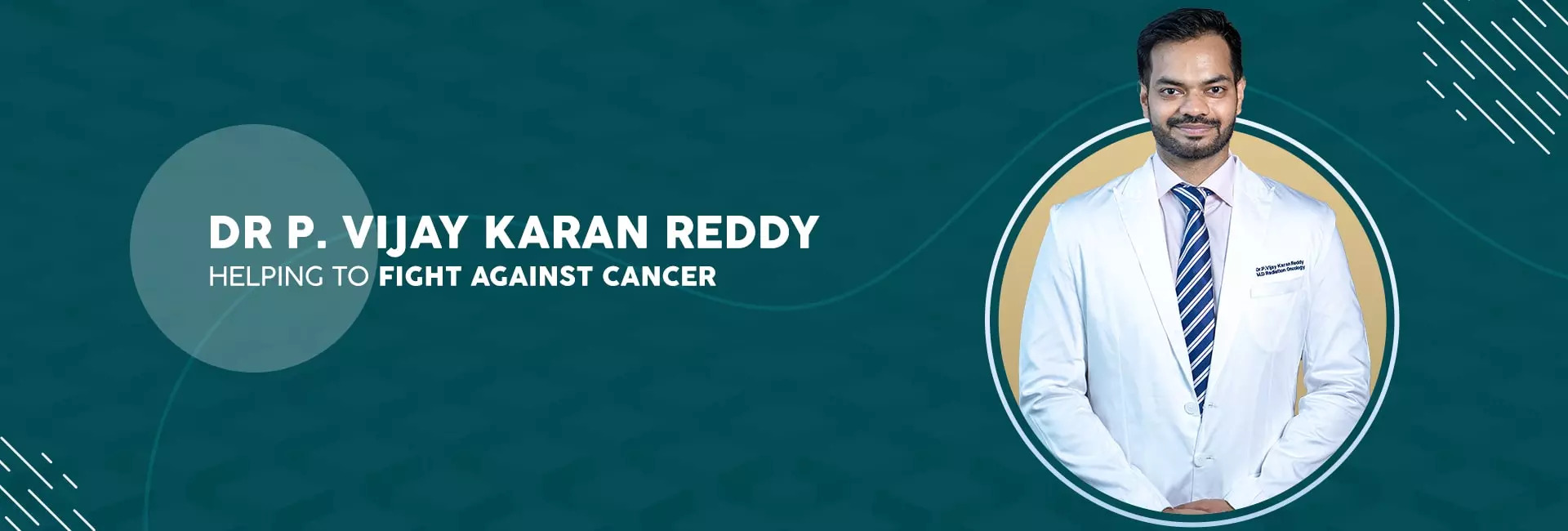Cancer is one of the leading causes of death worldwide, affecting millions of people each year. It is a condition where cells in the body grow uncontrollably and can spread to other parts of the body. However, one common question that often causes fear and confusion is: “Can cancer spread from one person to another?”
In this article, we will explain this topic in simple language, clear common myths, discuss real medical facts, and guide you on how cancer truly spreads. We will also share information about Cancer treatment in Hyderabad, the importance of consulting an Oncologist in Hyderabad, and how experts like Dr. P Vijay Karan Reddy help in diagnosing and treating different types of cancer effectively.
Understanding Cancer and How It Develops
Cancer is not a single disease but a group of diseases that occur when abnormal cells in the body grow and divide uncontrollably. These cancerous cells can form a lump or tumor and sometimes travel through the blood or lymphatic system to other parts of the body. This process is called metastasis.
There are many types of cancer, such as breast cancer, lung cancer, prostate cancer, and blood cancer, and each behaves differently. However, all cancers begin due to genetic changes in cells caused by factors like:
Tobacco use and smoking
Excessive alcohol consumption
Unhealthy diet and obesity
Exposure to harmful chemicals or radiation
Viral infections (like HPV or Hepatitis B)
Family history of cancer
While cancer can spread inside the body, it does not spread from one person to another like infections or contagious diseases.
Can Cancer Spread from One Person to Another?
The simple answer is NO, cancer is not contagious. You cannot “catch” cancer from someone else through physical contact, sharing food, hugging, kissing, or breathing the same air.
Cancer cells are abnormal cells from a person’s body and cannot survive or grow in another healthy person’s body because:
Immune System Protection: If cancer cells from another person enter your body (for example, through a cut or exposure to blood), your immune system will immediately recognize them as foreign and destroy them.
Genetic Differences: Cancer cells are linked to the genetic makeup of the person who has cancer. Your body does not accept those cells as normal.
No Infectious Agent: Unlike diseases caused by bacteria or viruses, cancer is not caused by an external germ that can pass between people.
So, the fear that cancer cells can spread from one person to another is largely a myth.
Situations Where Cancer Seems “Transferable”

While cancer itself is not contagious, there are very rare circumstances where it can appear to spread between people. These include:
a) Organ or Tissue Transplant
If a person receives an organ transplant from a donor who unknowingly had cancer, there is a very small risk of cancer cells transferring. However, this is extremely rare because:
Donors are carefully screened for cancer before transplantation.
Organ recipients are given medications that suppress the immune system, which may allow transferred cancer cells to grow, but the chances are minimal.
b) Pregnancy (Mother to Child)
In rare cases, cancer cells can pass from a pregnant mother to her unborn baby through the placenta. This happens only in exceptional circumstances, and doctors carefully monitor such cases.
c) Viruses Linked to Cancer
Some infections caused by viruses (like HPV or Hepatitis B) can increase the risk of developing cancer. While these viruses are contagious, it is the virus that spreads, not the cancer itself. For example:
HPV can lead to cervical cancer.
Hepatitis B or C can increase the risk of liver cancer.
This is why vaccination and safe practices are important to prevent virus-related cancers.
d) Experimental Cases
In very few medical research reports, accidental transfer of cancer cells occurred during surgery or in lab accidents, but the body’s immune system usually killed the foreign cancer cells quickly.
How Cancer Actually Spreads in the Body
Although cancer does not spread from person to person, it can spread within the same person’s body. This is how cancer progresses:
Local Spread: Cancer grows in nearby tissues.
Through the Blood: Cancer cells break away from the main tumor and travel through the bloodstream.
Through the Lymphatic System: Cancer cells move to lymph nodes and beyond.
This is why early diagnosis and timely cancer treatment in Hyderabad are crucial to stop the disease from spreading inside the body.
How to Safely Interact with Cancer Patients

Cancer patients need emotional and physical support during their treatment journey. There is no risk in:
Hugging a cancer patient
Sharing food, utensils, or personal items
Visiting a patient in the hospital or at home
It is important to treat cancer patients with compassion and not isolate them due to unfounded fears of transmission.
Modern Cancer Treatment and Care
Today, cancer is treatable and manageable in many cases, thanks to advances in medical science. Options include:
Surgery: To remove tumors or affected organs.
Chemotherapy: Drugs that kill cancer cells or stop their growth.
Radiation Therapy: High-energy rays to destroy cancer cells.
Targeted Therapy and Immunotherapy: Modern treatments that attack cancer cells with fewer side effects.
Stem Cell Transplant: Used in certain blood cancers for replacing damaged bone marrow.
Conclusion
Cancer is a serious illness, but it does not spread from one person to another like a contagious disease. You cannot “catch” cancer through close contact, touch, or sharing food. The only rare exceptions involve organ transplants, pregnancy-related cases, or virus infections that may later lead to cancer.
Supporting cancer patients is important for their recovery. Early diagnosis, timely treatment, and consultation with specialists like Dr. P Vijay Karan Reddy, a leading Oncologist in Hyderabad, can greatly improve survival chances and quality of life.
Frequently Asked Questions
1. Can cancer spread by sharing food or utensils?
No, cancer cannot spread by sharing food, utensils, or drinks. Cancer cells cannot survive in another person’s body, and it is not a contagious disease.
2. Can cancer spread through blood transfusion?
Blood donations are carefully screened, and the chances of cancer spreading this way are virtually zero.
3. Can organ donation transmit cancer?
In very rare cases, yes. If the donor had undiagnosed cancer, it could spread, but strict screening makes this risk extremely low.
4. Can viruses spread cancer from one person to another?
Certain viruses like HPV or Hepatitis B can spread between people and increase cancer risk, but the virus spreads, not the cancer itself.
5. Can living with a cancer patient put others at risk?
No, living with or caring for a cancer patient is completely safe and poses no risk of cancer transmission.


